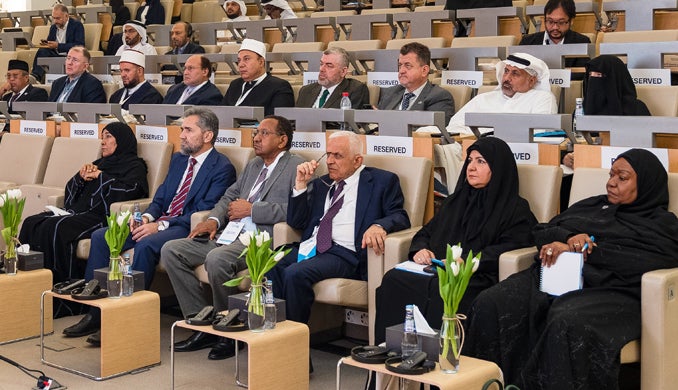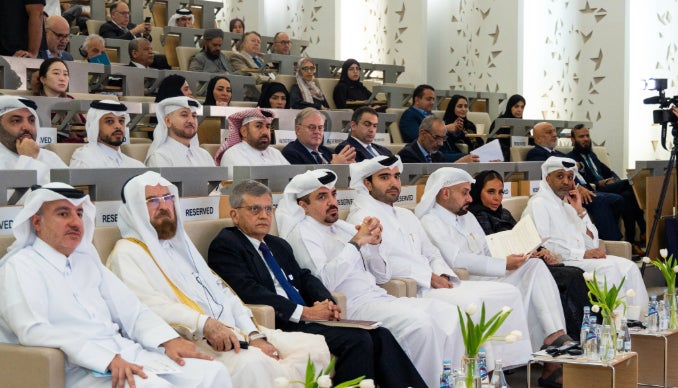Event first in series co-organized by HBKU and United Nations Development Programme
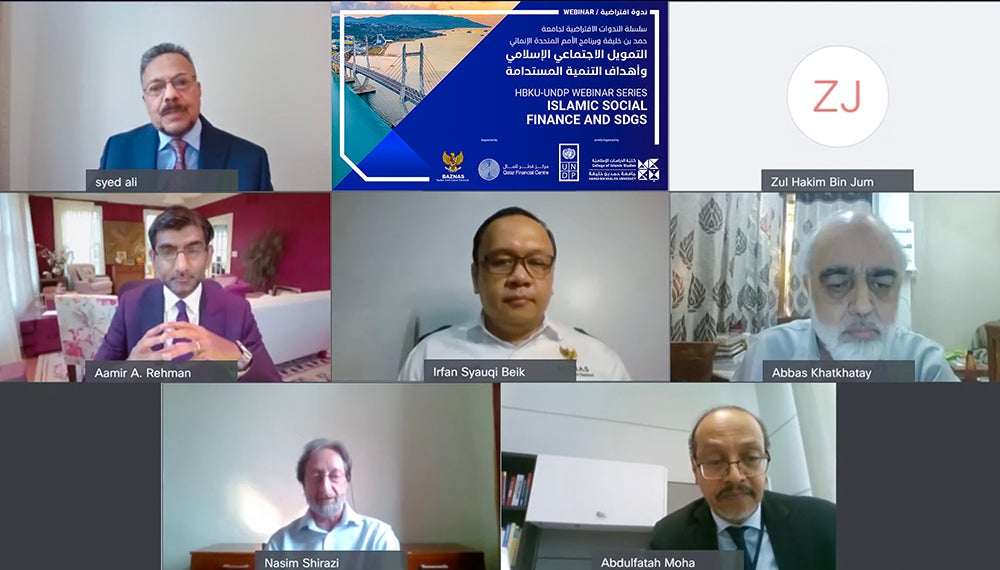
The potential for Zakat financing to fill funding gaps for achieving the Sustainable Development Goals (SDGs) was the opening subject of a three-part webinar series co-organized by the College of Islamic Studies (CIS) at Hamad Bin Khalifa University (HBKU) and the United Nations Development Programme (UNDP), in partnership with Qatar Financial Centre (QFC) Authority.
Taking place on October 6, the first instalment of the HBKU-UNDP Webinar Series: Islamic Social Finance and SDGs showcased National Zakat Board Indonesia’s (BASNAZ) innovative application of Zakat funds for local SDG projects in underserved communities. Consideration was also given to how the BAZNAS Zakat Model for development can be replicated and utilized within and beyond the Islamic world. In keeping with all HBKU events, proceedings concluded with opportunities for audience members to pitch questions and respond to observations made by the panelists.
Part one of the HBKU-UNDP Webinar Series was moderated by Dr. Aamir Rehman, a senior advisor to the UNDP and consultant to the World Bank. A case study of Indonesia’s use of Zakat funds at the local level was provided by Dr. Irfan Syauqi Beik, Director of Zakat Distribution and Utilization, BAZNAS. Participants gained additional insights from Dr. Nasim Shirazi, Professor of Islamic Finance and Economics at CIS; Dr. Abdulfatah Mohamed, Visiting Assistant Professor of Public Policy at CIS; and Dr. Mohammed Abbas Khatkhatay, the founder of MESCO in India.
Speaking after the webinar, Dr. Syed Nazim Ali, Director of CIS’ Research Division and its Centre of Islamic Economics and Finance (CIEF), said: “We are delighted and honored to be working with the UNDP on this webinar series. Doing so not only reflects HBKU’s determination to help fulfill the SDGs, but also CIS’ place at the forefront of global and intellectual debates on the applied nature of Islamic Studies. Innovative and resourceful use of Islamic social finance will be crucial over the years ahead, particularly when it comes to sustainability issues. We’re confident that this and our other webinars will provide an informed overview of what relevant types of Islamic social financing look like.
“We’d also like to acknowledge the support provided by the National Zakat Board Indonesia (BAZNAS) and the Qatar Financial Centre (QFC). Their respective contributions to a stimulating and thought-provoking opening webinar was much appreciated.”
The College of Islamic Studies at Hamad Bin Khalifa University regularly holds events to highlight its research activities and projects. For more information, please visit cis.hbku.edu.qa.
Related News
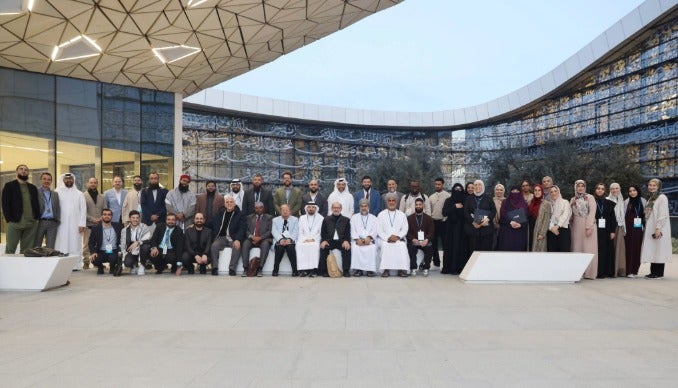
Hamad Bin Khalifa University Symposium Positions Islamic Psychology As Essential Part of Mental Health Systems
Qur’anic Botanic Garden and Herfah Program Revive Traditional Craft with New Dye Plants Garden
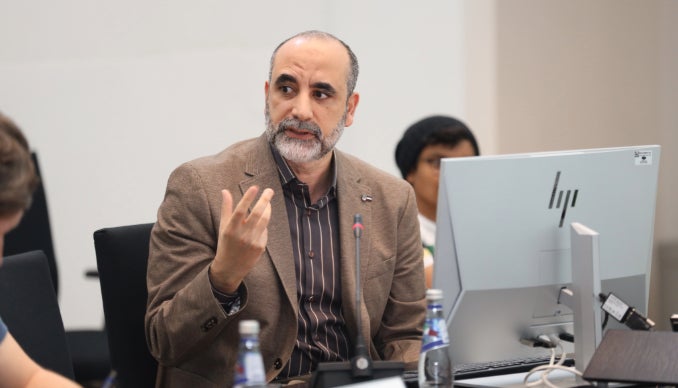
Hamad Bin Khalifa University’s International Islamic Bioethics Association Holds Inaugural Meeting
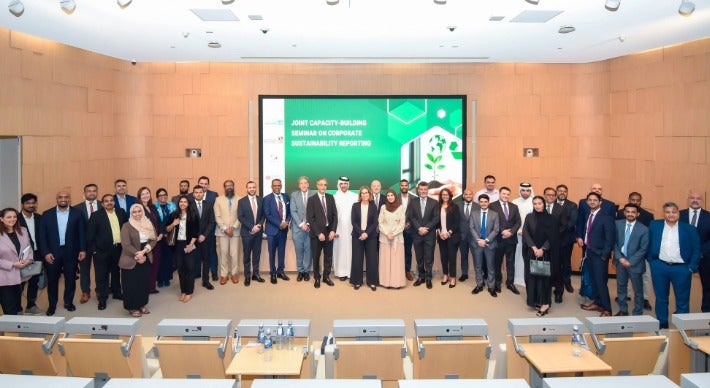
HBKU’s CIS Hosts Second High-Level Seminar on Corporate Sustainability Reporting
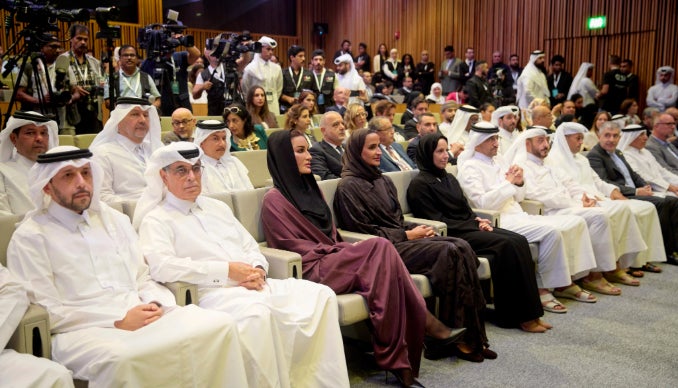
Her Highness Sheikha Moza bint Nasser Attends Hamad Bin Khalifa University’s Conference on AI Ethics
